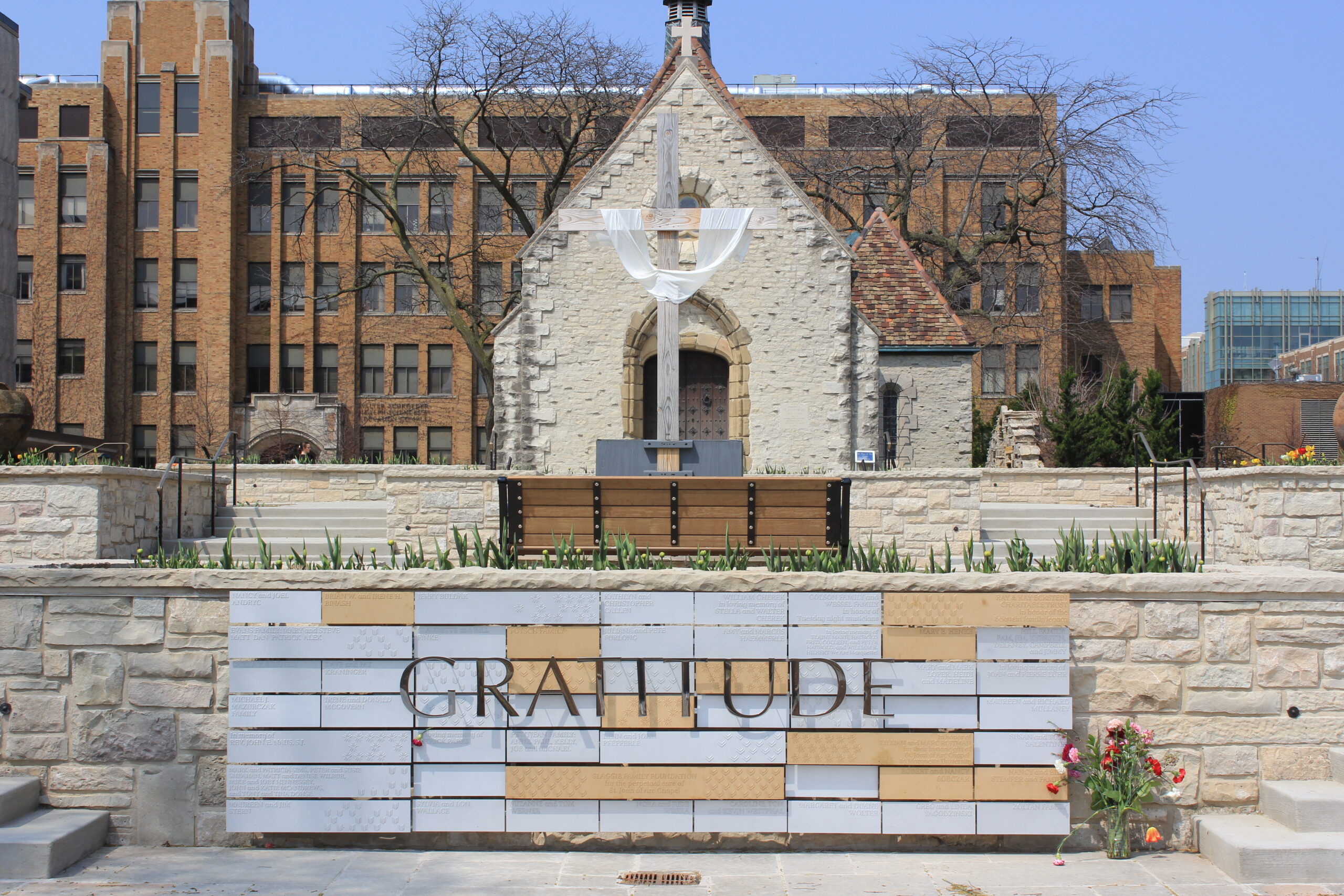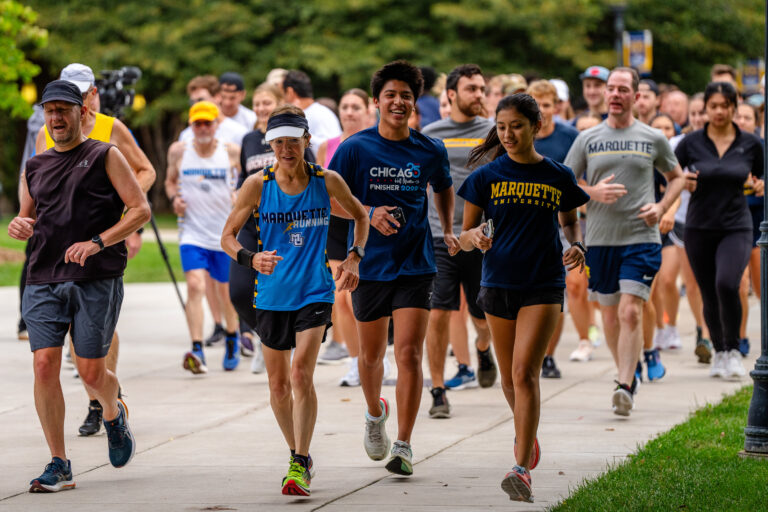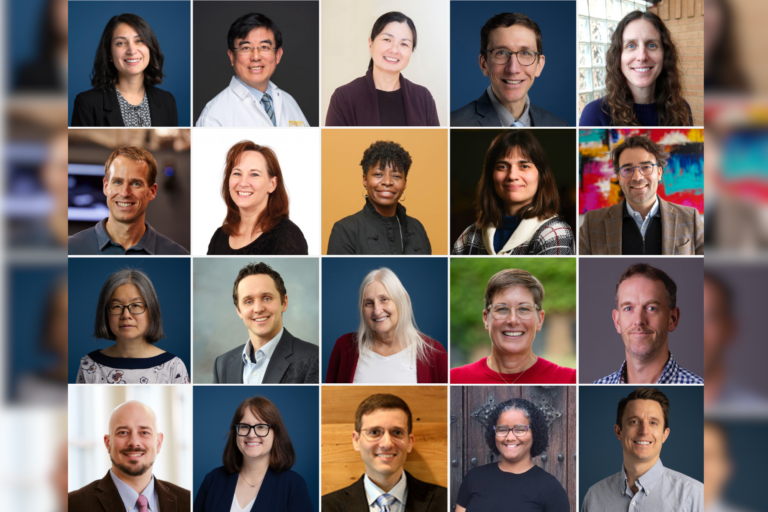Dear colleagues,
It seems eons ago since many of us gathered in the AMU for Finding Our Future Together. That gathering brought to the surface and named our campus culture’s need for healing. It also helped us to name some of the dynamics we would need to employ to heal and renew our campus culture for the future. We prioritized three specific themes for moving forward: 1) addressing multi-faceted problems with the ways we communicate with each other; 2) placing the mission of the university at the center of all we do; and 3) (re)building trust. As our academic year draws near to a close, I am writing to share with you some of the ways in which these priorities have shaped the work of the Office of Mission and Ministry over this past academic year.
Broader consultation
Following the symposium, I increased consultation with colleagues across the university through the constitution of a Vice President’s Advisory Council. This served, along with the Symposium Steering Committee, as a think tank and information sharing group to assist me in identifying challenges, concerns and strategies for serving the Marquette community.
Similarly, the development and implementation of programming for the Ignatian Year occurred with staff and faculty from across the university, divided into working groups. The give and take of the conversations generated by the participants guided the initiatives throughout the year.
Likewise, Mission Week drew on a broad range of collaborators to provide a rich range of opportunities for our community to explore and deepen our grasp on the mission.
These collaborative, mission-focused working groups, I believe, embodied a movement toward the quality of communication we heard the symposium participants calling for, while also advancing the mission and helping to build trust.
New mission integration initiatives
Over the course of the year, we have implemented (or continued) programming to enhance the Marquette community’s ongoing engagement with and reflection on what it means to be a Catholic, Jesuit University. In doing so, we have been mindful of engaging the three priorities raised at the symposium.
The Ignatian Humanism Book Groups, begun in spring 2021, have continued but are now influenced by the questions and concerns raised at the symposium. These groups provide an opportunity for staff and faculty from across the university to come together on a regular basis to discuss a chapter and to reflect on its implications for our own lives — on campus and off. Each group has at least two Jesuits participating. The conversations range far and wide but are consistently rich. We have just completed our second cohort, this time consisting of four groups (the initial cohort consisted of nine) and will be offering opportunities for those who are interested to participate in a book group over the summer.
In dialogue with the VP Advisory Council and the Symposium Steering Committee, we have developed “Mission Conversation” opportunities. These are of two kinds. One form takes up the call from the symposium to engage with people where they are. Our initial efforts at this model, begun this spring, have involved time for individual reflection, sharing with colleagues, and input drawn from Ignatian inspiration to support our faculty and staff in their important work. The themes for these will change and evolve according to the needs of the moment or the group. The second form of “Mission Conversation” draws people from across the campus together to receive input and engage in dialogue on important topics. Our first occurred on April 19, the eve of Earth Day. It was a 90-minute social, input and conversation session on integral ecology and Marquette University. Going forward we will continue to offer both kinds of Mission Conversation opportunities each semester.
This spring we also launched our Faculty Mission Integration Fellowships. These fellowships offer a course buyout for one or two semesters for projects that will help integrate the mission more deeply into the fabric of Marquette’s community. The focus here is on projects that can be readily adapted to enhance the work of faculty and/or staff as they deliver the mission to our students. Six such fellowships have been awarded to begin this fall and run through the year. The cohort will meet regularly to learn more about the mission of Jesuit higher education and about the resources the Ignatian Spiritual Heritage can offer to their distinct projects.
These are some of the more notable ways in which the Office of Mission and Ministry and I have been working to move forward on the priorities identified at the symposium last August.
I hope you will find this information helpful and that you will consider participating in mission activities going forward. An announcement about reading groups for the summer will be coming out shortly. The Office of Mission and Ministry will provide you with the book. If you are interested, please join us.
Best wishes to you all as we head into the summer season.
Peace,
Jim Voiss, S.J.
VP for Mission and Ministry



